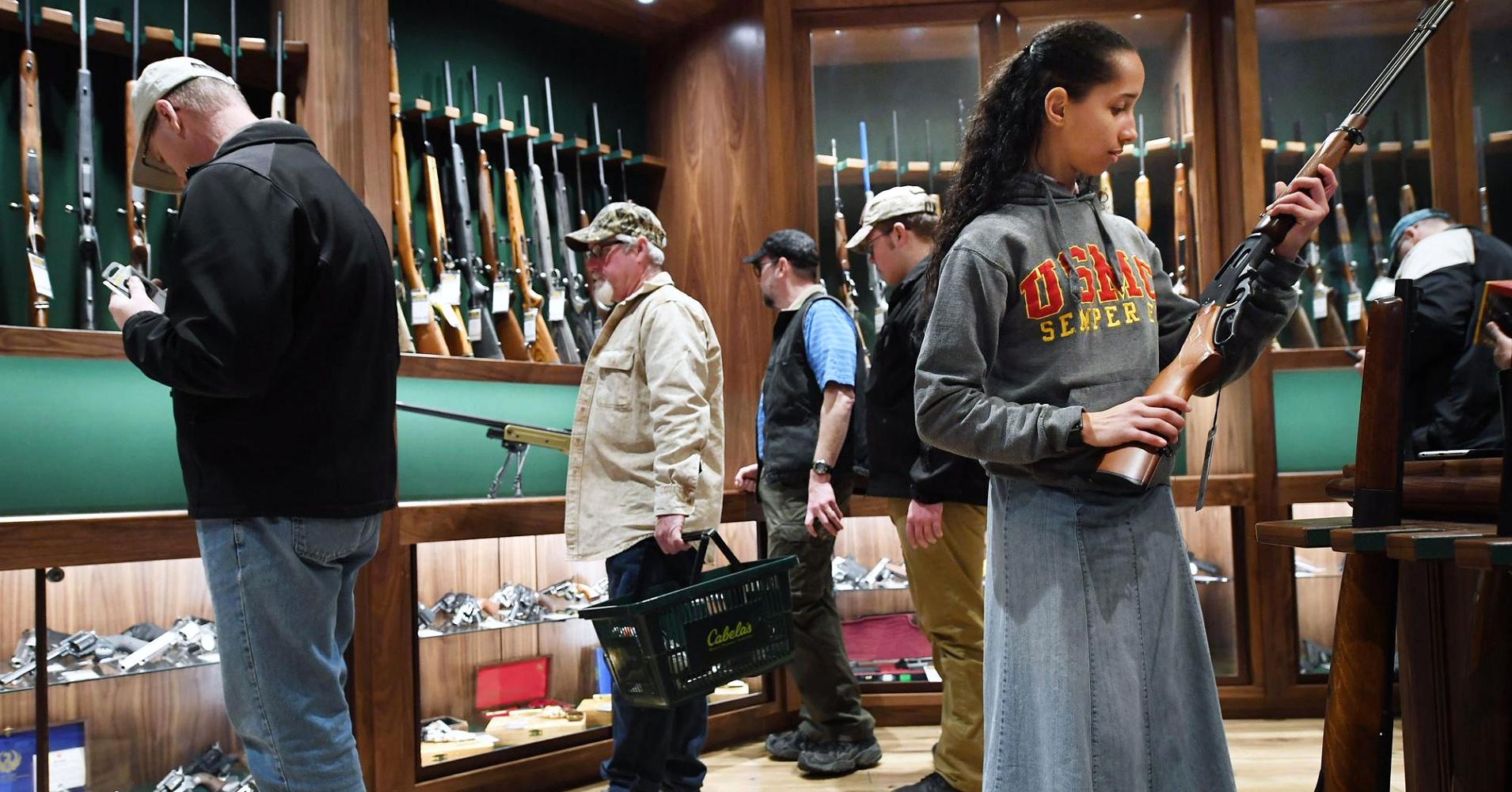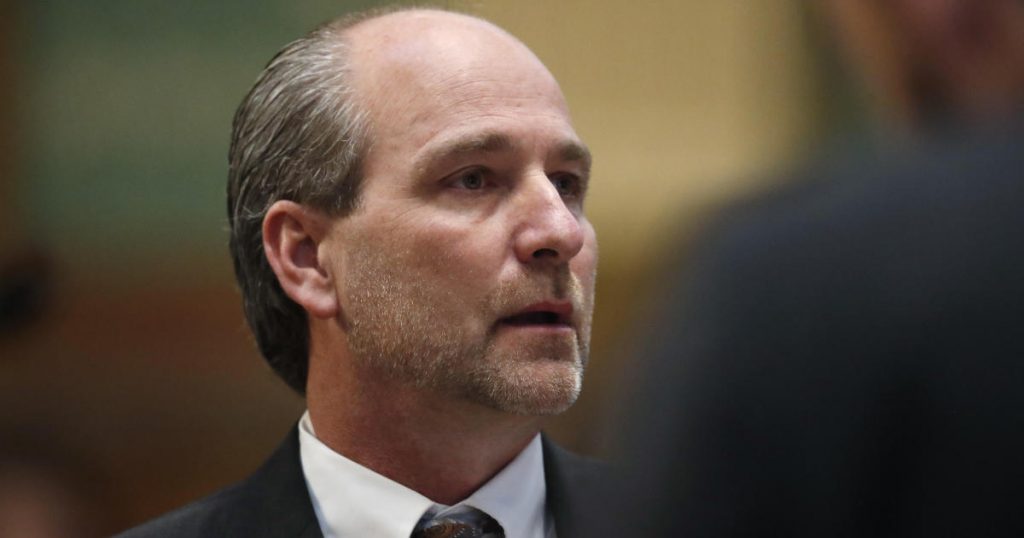
As consumers pressure corporate America to act in the wake of last month’s mass shooting at Marjory Stoneman High School in South Florida, one of Wall Street’s highest-profile companies finds itself in an awkward position: Goldman Sachs.
In 2017, Goldman’s private equity arm helped finance Bass Pro Shops’ roughly $4 billion purchase of hunting and sporting good retail rival Cabela’s. The bank contributed approximately $1.8 billion in preferred equity to the deal. It was the largest investment of the bank’s first new private equity fund since the financial crisis.
That bet makes it awkward for the bank to come out with a stance on gun control, as corporate America is now being called on to do. There is ongoing debate about the fairness of that expectation and what the appropriate response should be. Still, financial instiutions like BlackRock and Bank of America have vocally weighed in on the matter.
In a statement provided to CNBC, Goldman Sachs said: “We are saddened by recent events, especially the tragedy in Florida last month. We are in touch with management at Bass Pro/Cabela’s and know they are deeply concerned and focused as well.”
Goldman Sachs’ ownership stake in Cabela’s is small, and the company does not have a board seat. Its equity is “preferred” which, in layman’s terms, means it is more akin to a financing tool than it is to ownership. It nonetheless forges a connection between Goldman and guns at a time at which scrutiny of the firearms industry is high. Goldman declined to disclose the size of the stake.
The alleged gunman who massacred dozens of people in Las Vegas is said to have bought a gun at Cabela’s, according to multiple reports. (The retailer reportedly has since gotten rid of bump stocks, which are a legal attachment that makes guns fire faster.)
Goldman did not issue a statement in response to the Las Vegas shooting, though did provide a comment to Axios about its previous investment in SureFire, a high-capacity magazine that TMZ alleged was used in the massacre. (Goldman said SureFire moved into magazines after its investment, against its wishes. Its stake in the company is currently for sale, a source familiar with the matter tells CNBC.)
Cabela’s/Bass Pro is one of the few national retailers that has not publicly issued new gun restrictions in the wake of the Florida shooting, despite vocal measures taken by Walmart, Kroger and Dick’s Sporting Goods, among others.
It is also one of the most reliant on the industry, heavily steeped in hunting culture. Outdoor products including guns comprised roughly half Cabela’s sales, according to securities filings from before its sale to Bass Pro. The retailer has gun libraries on its grounds and displays taxidermy in its stores. It is one of a thinning number of national stores that still sell AR-15 assault rifles, the weapon allegedly used by the Parkland shooter.
Neither Cabela’s nor Bass Pro responded to CNBC’s requests for comment.
As the country’s most renowned investment bank, Goldman Sachs employees know its actions and investments are scrutinized more than most. It is because of that awareness that its private equity fund faced more rigorous evaluation than typical for its investments when it proposed investing with Bass Pro, sources tell CNBC.
In order to do the deal, it needed the approval of some of the most senior people in the firm. There were an inordinate number of internal committee meetings to get the deal signed off on, including those that included the firm’s general counsel, the sources said.
Despite so-called headline risk (a public relations term referring to fears of a headline linking a company with bad news) guns are a multibillion-dollar industry. They also bring shoppers to stores at a time in which brick-and-mortar retail is desperately fighting off Amazon.
The firm’s policy to date forbids investment in gun manufacturers for “reputational reasons,” according to a portion of a policy excerpt obtained by CNBC and confirmed by a Goldman Sachs spokesperson. (It makes exceptions for guns used by the government or similar entities.) That policy does not mention gun retailers.
Before the Bass Pro deal, Goldman Sachs also looked at Mills Fleet Farm, another gun retailer, sources tell CNBC. Private equity firm KKR ultimately acquired Mills Fleet Farm in 2016 for more than $1 billion.
The bank did not have a comment as to whether it would chose to invest in Bass Pro/Cabela’s today, nor whether it would consider divesting its stake.
To be sure, Goldman does not find itself on an island. Wall Street has a long history with the gun industry.
Cerberus Capital, owner of gun maker Remington Outdoor, faced massive scrutiny when it was discovered the murderer of 26 people at Sandy Hook Elementary School in Newtown, Connecticut in 2012, used one of Remington’s Bushmaster rifles. The private equity firm unsuccessfully tried to sell the investment in the wake of the massacre, and Remington now plans to file for bankruptcy.
In addition to Mills Fleet Farm, KKR owns another gun retailer, Academy Sports.
Bass Pro’s acquisition of Cabela’s was financed by Bank of America Merrill Lynch, Wells Fargo, Citigroup, RBC and UBS. As part of the deal, Cabela’s sold its credit card business to Capital One, which in turn recently awarded the associated branded credit card to Mastercard.
Meantime, banks across Wall Street lend to one of the nation’s biggest retailers, Walmart, which means they are doing business with a gun retailer.
Still, there is a distinction between lending and owning. Multiple private equity investors and corporate communications professionals who spoke with CNBC said pressure for those investment funds that own stakes in the gun industry to divest themselves entirely is the highest they’ve seen.
“There is a difference between now and a couple years ago. People are starting to realize they can put pressure on third-party corporations to make the change they want,” said Paul Argenti, a professor at Dartmouth’s Tuck School of Business who has consulted with companies on corporate social responsibility.
Investing giant Blackstone Group has asked outside funds in which it has a direct stake to detail their ownership in companies that make or sell guns, a source familiar with the situation said. The Wall Street Journal first reported on Blackstone’s inquiry. On Friday, BlackRock, the world’s largest money manager, put out a statement saying it may use its voting power to influence gun policy. It is also exploring index funds that omit gun makers and retailers.
To be sure, what is said publicly in the weeks after a national tragedy like in Florida does not always translate into long-lasting change. Further, there remains vigorous debate over whether Wall Street should be expected to turn its back on a legal, multibillion-dollar industry. Warren Buffett has said that for Berkshire to do so would be “ridiculous.”

